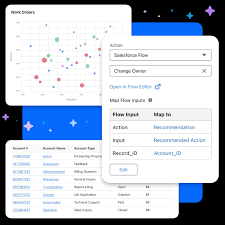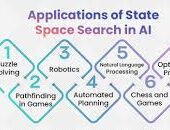How AI-Driven Data Curation is Transforming Precision Medicine
Precision medicine—a healthcare approach that personalizes disease prevention and treatment based on insights into a patient’s genes, environment, and behavior—holds incredible promise. However, its success depends on high-quality, curated data from sources like electronic health records (EHRs). This reliance creates significant challenges for healthcare providers and researchers. Can artificial intelligence (AI) help address these hurdles?
AI-enabled data curation is already making strides in advancing precision medicine, particularly in oncology. By analyzing vast datasets, including structured and unstructured information, AI is helping healthcare organizations accelerate research and improve patient outcomes.
Data Curation Challenges in Precision Medicine
Real-world data (RWD) is a key driver of precision medicine, but processing this data is fraught with challenges. According to Dr. C.K. Wang, Chief Medical Officer at COTA, Inc., EHRs provide unprecedented access to detailed patient information, enabling deeper insights into care patterns. However, much of this data resides in unstructured formats, such as clinicians’ notes, making it difficult to extract and analyze.
“To transform this unstructured data into actionable insights, significant human expertise and resources are required,” Wang explained. While AI tools like COTA’s CAILIN, which uses advanced search capabilities, streamline this process, human involvement remains essential.
Wang emphasized that even with the rapid advancements in AI, healthcare data curation requires expert oversight to ensure quality and reliability. “The adage ‘junk in, junk out’ applies here—without high-quality training data, AI cannot generate meaningful insights,” he noted.
PHI and COTA: A Collaborative Approach to AI-Driven Curation
To overcome these challenges, Precision Health Informatics (PHI), a subsidiary of Texas Oncology, partnered with COTA to enhance their data curation capabilities. The collaboration aims to integrate structured and unstructured data, including clinician notes and patient-reported outcomes, into a unified resource for precision medicine.
PHI’s database, which represents 1.6 million patient journeys, provides a rich resource for hypothesis-driven studies and clinical trial enrichment. However, much of this data was siloed or unstructured, requiring advanced tools and expert intervention.
Lori Brisbin, Chief Operating Officer at PHI, highlighted the importance of partnering with a data analytics leader. “COTA’s strong clinical knowledge in oncology allowed them to identify data gaps and recommend improvements,” she said.
This partnership is yielding significant results, including a high data attrition rate of 87%—far surpassing the industry average of 50% for similar projects.
The Role of AI in Cancer Care
AI tools like CAILIN are helping PHI and COTA refine data curation processes by:
- Streamlining Clinical Trial Inclusion: AI narrows down eligible candidates by sifting through medical records to identify trial inclusion and exclusion criteria.
- Reducing Administrative Burdens: Automated workflows enable staff to focus on higher-level analysis while AI handles repetitive tasks like keyword searches.
- Improving Data Quality: AI flags missing or inconsistent data elements, ensuring better outcomes for research and patient care.
Brisbin likened the role of AI to sorting images: “If you’re looking for German shepherds, AI will narrow the search but might include similar images, like wolves or huskies. Experts are still needed to validate and refine the results.”
Building the Foundation for Better Outcomes
The integration of high-quality RWD into analytics efforts is reshaping precision medicine. While clinical trial data offers valuable insights, it often lacks the variability seen in real-world scenarios. Adding RWD to these datasets helps expand the scope of research and ensure broader applicability.
For instance, cancer care guidelines developed with RWD can account for diverse patient populations and treatment approaches. COTA’s work with PHI underscores the value of collaborative data curation, with AI streamlining processes and human experts ensuring accuracy.
The Future of AI in Precision Medicine
As healthcare organizations invest in data-driven innovation, AI will play an increasingly pivotal role in enabling precision medicine. However, challenges remain. Wang noted that gaps in EHR data, such as missing survival metrics, can undermine oncological outcomes research. Advances in interoperability and external data sources will be key to addressing these issues.
“The foundation of our partnership is built on leveraging data insights to enhance care quality and improve operational efficiency,” Wang said.
Through AI-powered tools and meaningful partnerships, precision medicine is poised to deliver transformative results, empowering providers to offer tailored treatments that improve patient outcomes at scale.
🔔🔔 Follow us on LinkedIn 🔔🔔













